Quick Read
Explore the business model of Google, a tech giant known for its innovative products and services. Discover how Google’s revenue model and strategic initiatives have made it a leader in the digital world.
Learn From Asia’s #1
Digital Marketing Institute
AI-Based Curriculum
Dive in to the future with the latest AI tools
Placement at top brands and agencies


 & more...
& more...

Google LLC, a household name synonymous with internet searches, is an American multinational company offering a vast array of services and products. They’ve grown from a simple search engine into a tech giant with its fingers in many pies: online advertising, cloud computing, software, hardware, and much more.
But what exactly fuels this remarkable growth? The answer lies in Google’s business model. This case study will delve into the core aspects of Google’s business model, including how the company generates revenue (revenue model), who their customers are (customer segmentation), and the key activities and costs involved in running such a complex operation.
Before diving into the specifics of the business model, let’s take a moment to understand Google as a company. Understanding their background will provide valuable context for their business strategies.
About Google

Source: Google
The story of Google actually began a few years earlier, in 1995, at Stanford University. Sergey Brin was already a student there when Larry Page arrived to begin his graduate studies. Their friendship and shared passion for technology led them to collaborate on a search engine that relied on backlinks (links from other websites) to determine search relevance. They named their initial project ‘BackRub,’ but it was soon replaced by the now-iconic ‘Google.’
With a strong belief in their idea, they secured funding of one million dollars from family, friends, and investors. In 1998, Google Inc. was officially born. The company experienced rapid growth in the following years, outgrowing its initial workspace and eventually moving to its current headquarters, the famous Googleplex in California.
Now that we’ve explored the company’s inspiring origin story, let’s delve into the business model of Google that has fueled its remarkable success. We’ll uncover the strategies that have allowed Google to not only provide a valuable service but also thrive in the ever-evolving world of technology.
Business Model Of Google: Latest Statistics
- Google’s parent company Alphabet reported revenues of $257.6 billion in 2023. [Source: Alphabet Annual Report 2023]
- Google holds a 92.6% share of the global search engine market. [Source: StatCounter]
Business Model Of Google: Key Activities of Google
Before we get into the specifics of Google’s business model, I have a question for you, have you ever wondered how Google finds exactly what you’re looking for in a sea of billions of webpages? Here’s a breakdown of the magic behind Google Search:
1. Crawling and Indexing
Imagine Google Search like a giant library. Just like a librarian meticulously catalogues books, Google uses special programmes called ‘crawlers’ to scour the internet and discover new web pages. These crawlers visit and analyse these pages, understanding their content and storing that information in a massive digital index – similar to a library card catalogue.
2. Search, Match, and Present
When you enter a search query, Google doesn’t blindly throw every webpage at you. Instead, it cleverly uses its index to identify web pages that best match your search terms. It considers factors like the relevancy of the content, the trustworthiness of the source, and even how well the webpage itself is built. This ensures you get the most relevant and useful results at the top of your search page.
3. Improving Your Search Journey
Google is constantly learning and evolving to understand your searches even better. It goes beyond simply matching keywords. It tries to grasp the intent behind your query and eliminate irrelevant or misleading websites.
4. Building a Connected Ecosystem
Google doesn’t just work as a search engine. It offers a variety of tools and services like Gmail, YouTube, and Chrome. By connecting these different parts, Google creates a more comprehensive user experience. For example, your search history on Chrome might influence your search results on Google Search.
5. Marketing
Just like any other company, Google promotes its products and services to reach more users. This helps people discover the many ways Google can enhance their online experience.
By understanding these core functions, you can appreciate the impressive technology behind Google Search and how it efficiently connects you with the information you seek. Now that it is all clear to you how exactly
Google works, let’s just get started with understanding the ins and outs of Google’s Business Model.
Are you intrigued by the dynamic world of marketing, but unsure where to begin your educational journey? As a seasoned marketing professional, we understand the challenges of navigating the vast landscape of learning resources.
Allow me to introduce a compelling option – an online digital marketing course with certification. This program offers the flexibility of online learning, making it ideal for busy schedules.
A digital marketing course could be the perfect springboard to launch your exciting career in the digital world. Hurry up and don’t miss out on the opportunity.
🚨 FREE MASTERCLASS
Building a Profitable Instagram Strategy
Worked with:








virsaini
Business Model of Google
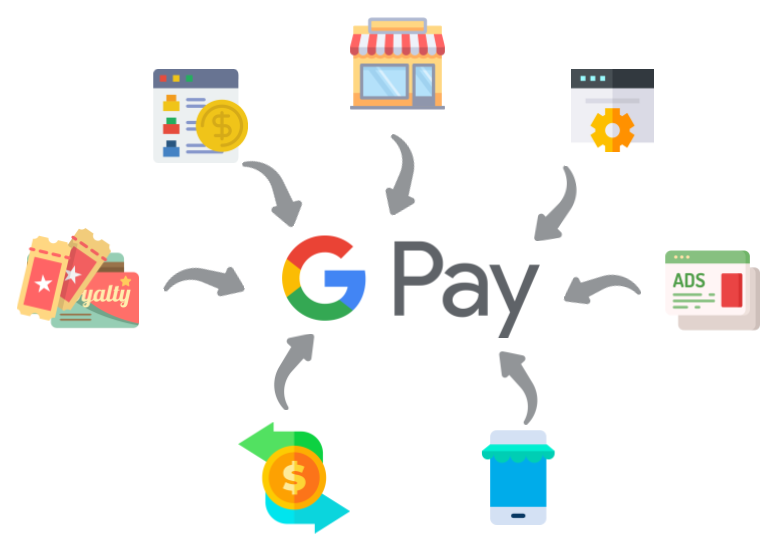
Source: Google
Google’s business model might seem surprising at first. Unlike many other companies you interact with, Google doesn’t charge you directly for its services like search or Gmail. Instead, it relies on a hidden revenue model.
Here’s how it works – Businesses pay Google to advertise themselves on the search engine. This means when you search for something, companies can pay to have their website appear at the top of the results. Google makes money based on the number of clicks these ads receive.
The massive amount of searches happening on Google every second (around 63,000) makes this a very profitable model for Google. With so many people using their search engines, businesses are willing to pay to reach those potential customers.
Fascinated, aren’t you by Google’s success? Understanding how other companies operate can be insightful. Consider exploring the business model of Uber, the business model of Netflix, or the business model of Airbnb.
Each of these companies has found unique ways to reach and engage its target audience. Analysing these diverse approaches can provide valuable lessons for businesses of all sizes.
Business Model Of Google: Market Share & Market Analysis
Google dominates the search engine market with a staggering 92.6% global market share. The company’s influence extends across various digital services, including advertising, cloud computing, and hardware. Google’s business model is centred around monetising its massive user base through advertising. Their advertising platform, Google Ads (formerly AdWords), allows businesses to target potential customers with relevant ads across Google Search, partner websites, and YouTube.
This focus on advertising has proven highly successful, with Google’s revenue model generating significant income. Understanding Google’s business model is crucial for businesses of all sizes, as it offers valuable insights into online advertising strategies and user behaviour.
Business Model Of Google: Product Offerings
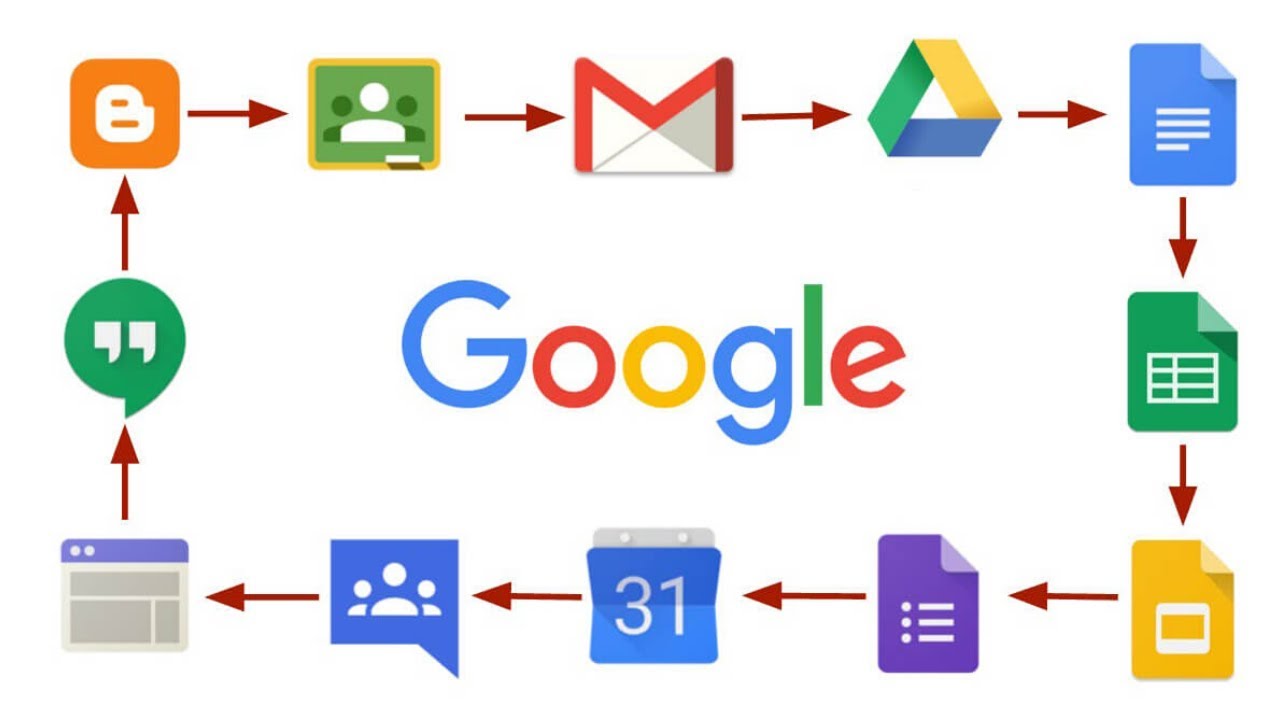
Source: Google
Google’s product portfolio is vast, ranging from its core search engine to a suite of cloud services. Key products include Google Search, Google Ads, YouTube, Google Cloud, and the Android operating system. The company also offers hardware products like the Google Pixel smartphones and Google Nest smart home devices.
Understanding Google’s business model is crucial to grasp how this tech giant generates revenue. At its core, Google utilises an advertising business model, with Google Ads being a key revenue driver. PC advertising model allows businesses to reach a vast audience while Google profits from each click.
Business Model of Google: Target Audience
Google’s business model caters to a wide range of users, with something to offer for individuals, businesses, and developers. Here’s a breakdown:
Consumers: This group uses Google’s everyday tools, like search, email, and entertainment services like YouTube. You, me, and everyone who searches the web fall into this category. While we don’t directly pay Google, our use of these free services allows them to gather valuable data that helps them refine their advertising for businesses.
Businesses: Businesses of all sizes, from large corporations to small startups, leverage Google’s advertising platform (Google Ads) to reach potential customers. Additionally, Google Cloud offers solutions for businesses to store data and build applications.
Developers: For those building apps and websites, Google provides valuable tools like Google Analytics and Firebase. These tools help developers understand how users interact with their creations and make informed decisions for improvement.
By targeting these distinct groups, The company has made sure to establish itself as a dominant force in the online world.
I know this is off-topic but if you are someone who is interested in learning about social media and how that particular world works, then this free Instagram marketing course will give you quite a good start.
Business Model of Google: Funding & Investors
Google’s initial funding came from venture capital investments, including a $25 million round from Sequoia Capital and Kleiner Perkins in 1999. The company went public in 2004, raising $1.67 billion. This shift from venture capital funding to a public offering marked a significant milestone in Google’s journey.


Business Model of Google: Revenue Model
Google’s revenue model, relies heavily on advertising. They offer a platform called Google Ads (formerly AdWords) that allows businesses to reach potential customers through targeted advertising campaigns. ThisGoogle advertising business model gives significant strength to entire Google’s business model.
The company also generates revenue from cloud services, hardware sales, and app store fees. Google’s advertising business model also involves auction-based pricing, where advertisers bid for ad placements on search results and partner websites.
More than three-fourths of Google’s revenue comes from Google Ads and YouTube ads. But the company is also engaged in some other important businesses which are described below:
1. Advertising

Source: Google
Google is based on Performance Advertising. This means that the advertiser would need to pay only when the user takes a particular action such as clicking on a link.
Google has five advertising platforms:
- Google Ads: This refers to the ads that appear when a user searches on the Google search engine. This usually appears on the top of the Search Results page.
- Google Shopping: This appears in the shopping section of companies that have paid Google to advertise their products.
- Google Adsense: The website provides spaces for Google Ads which are displayed as per the user’s time and demand.
- Google Admob: The advertisers can advertise on their apps and this can help developers earn some money from their apps.
- YouTube: There are a variety of ads displayed in a YouTube video. For these ads, the advertisers pay Google to advertise their products and services.
2. Youtube Premium

Source: Google
YouTube Premium is a subscription-based model of YouTube. The various advantages offered by YouTube Premium over YouTube is that it offers ads-free streaming across YouTube, YouTube Music, and YouTube Gaming, and a lot more.
3. Google Cloud
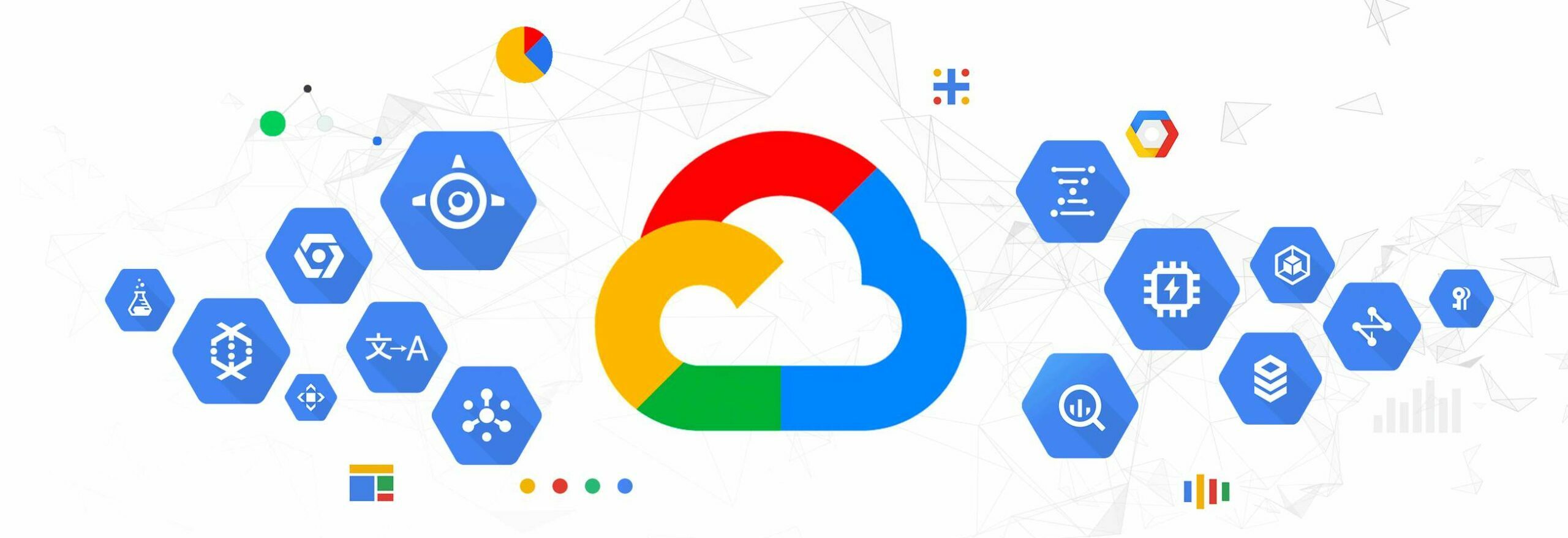
Source: Google
It is a cloud computing service run by Google. Although 15 GB of space is provided free of cost, the user needs to pay for more cloud space. It is worth mentioning that Google Cloud represents 5.5% of the total revenue earned by Google.
4. Google Pixel
Source: Google
It refers to the smartphone brand of Google. Although it does not have a large representation among the various market players it has been growing nowadays.
The company has also merged with Google Home. The company develops various gadgets for homes including cameras, doorbells, smoke systems, locks, and a lot more.
Let us now know about googles customer segmentation.
Business Model Of Google: Marketing Strategy

Source: Google
Google’s marketing strategy focuses on brand awareness and product integration. The company utilises its vast network to promote new products and services, leveraging data-driven insights to target specific audience segments. Google also invests in large-scale advertising campaigns, sponsorships, and partnerships with major brands and institutions. This comprehensive approach complements Google’s advertising business model by reaching a wide audience and establishing Google as a trusted and innovative brand.
Marketing is an essential and enduring aspect of business. Without effective marketing, businesses struggle to reach customers and ultimately fail to thrive. Within the marketing landscape, digital marketing has become increasingly prominent.
Many businesses actively seek skilled digital marketing professionals to achieve the desired results. Don’t miss out on this growing opportunity. An MBA in Digital Marketing can equip you with the knowledge and skills to excel in this dynamic field. This investment in your education can yield significant returns, potentially exceeding those achievable in other fields.
Or, if you want to be absolutely sure about your decision before committing yourself to this long journey then don’t be hesitant to take a look at this free digital marketing certification course.
Business Model of Google: Value Proposition
Google’s value proposition lies in providing fast, reliable, and comprehensive access to information. The company offers free services supported by a robust advertising model, ensuring high-quality user experiences. Google’s continuous innovation and user-centric approach further enhance its value proposition.
Business Model of Google: Operational Model
Google operates a highly efficient and scalable operational model supported by advanced data centres and cloud infrastructure. The company’s operations are driven by data analytics, machine learning, and artificial intelligence, enabling real-time decision-making and optimisation of services. This focus on data and automation is a key strength of Google’s business model.
Business Model of Google: Strategic Alliances & Partnerships
Google has formed numerous strategic alliances and partnerships to expand its reach and capabilities. Collaborations with companies like Samsung, Cisco, and Salesforce enhance Google’s product offerings and market penetration. These partnerships also foster innovation and integration across various platforms and services, further strengthening the business model of Google.
Business Model of Google: Technological Innovations
Google is at the forefront of technological innovation, with significant investments in AI, machine learning, and quantum computing. Innovations such as Google Assistant, Google Duplex, and TensorFlow demonstrate Google’s commitment to advancing technology and improving user experiences.
These advancements not only enhance user experience but also contribute to Google’s business model. By developing cutting-edge AI and machine learning technologies, Google can refine its advertising algorithms and deliver more relevant and targeted ads to users.
This, in turn, strengthens the value proposition for businesses using Google Ads, potentially increasing revenue generated through their advertising platform.
Corporate Social Responsibility (CSR)
Google’s CSR initiatives focus on sustainability, education, and digital inclusion. The company aims to operate on 100% renewable energy and has launched numerous programmes to promote digital literacy and support underrepresented communities. Google.org, the philanthropic arm, contributes to various global causes.
Business Model of Google: Competitors Analysis
Search Engines Competitors:
- Bing: It is Microsoft’s search engine and accounts for something between 2% and 6% of the market share computed worldwide. It has its origin from Microsoft’s previous search engines: MSN Live, Windows Live Search and Live Search.
- Yahoo: Yahoo is an American web service provider and was one of the biggest search engines on the planet, but now accounts for only around 2% of the market share computed worldwide.
- Baidu: It is popularly known as the Google of China and it accounts for more than 60% of the search engine market in China. Globally it accounts for nearly 1% of the global market share.
- Yandex: Yandex is the search engine used in Russia and accounts for nearly 45% of the search engine market in Russia. Google has also suffered losses from the Russian Government due to the so-called prohibitive content.
Advertising competitors
Facebook: Facebook is also a major player in the online advertising industry. It has a nearly 25% market share in the advertising industry.
Amazon: The competitor may seem odd at first, but makes sense when we look into the analytics. Amazon accounts for nearly 8.8% of the ads share worldwide which poses a threat to Google’s advertising business.
Mobile Industry
Apple: Although Android is the leader in the mobile industry and is well ahead of iOS. However, Apple as a company poses threat to both the software and the hardware market as well as Google has its Pixel phones and has acquired Motorola as well.
Cloud Services
Amazon Web Services: Amazon Web Services is the leader in the field of Cloud Computing with a market share of 33%. Google just has a market share of 8%.
Microsoft Azure: Microsoft Azure is also a strong competitor for Google and accounts for 16% of the total market share which is well ahead of Google.
Even within the realm of digital marketing, competition is fierce. This applies not only to businesses vying for customer attention but also to educational institutions competing to offer the best digital marketing courses.
To navigate this competitive landscape and find the best fit for your needs, consider exploring digital marketing courses in delhi, digital marketing courses in faridabad.
Or, digital marketing courses in rohini, each of these locations will offer you unique programs that will surely benefit your future.
Business Model Of Google: Strengths and Weaknesses
Google’s Strengths
Leadership: Google is the ultimate leader in the online search engine market and to date, no competitor has come to such a position to threaten Google’s existence.
Technology: Google’s systems processing speed is awesome and it can process more than 40,000 queries per second.
Revenue: Google can generate huge revenues from its various businesses discussed above which permits it to invest in innovation and new products and acquisitions regularly.
Google’s Weaknesses
Privacy Policies: One of the important weaknesses of Google is its privacy policies. The company is frequently questioned about its inner policies of hiding information on its algorithms and similar information.
Overdependence on Advertising: Nearly 80% of Google’s revenue is from advertising and the company can suffer worst situations from the competition and political situations.
Learn From Asia’s #1
Digital Marketing Institute
AI-Based Curriculum
Dive in to the future with the latest AI tools
Placement at top brands and agencies


 & more...
& more...

Conclusion
On the analysis of the business model of Google, we have known that Google has a well-distributed and well-organised structure. It uses different methods to build its revenue like advertising using google ads, google shopping, google AdSense, youtube, etc. We have also seen the different customer segmentation of google which include advertisers, content publishers, and users.
Wasn’t it interesting to know the Business model of Google? If so, then we have so many other similar case studies that you might enjoy reading about just as much as you did during this one. So, dont think too much and check out this digital marketing case studies page.
Or, if you are interested and want something different, then check out this digital marketing blogs page.
Lastly, Thank you for reading this article. Don’t forget to let us know your thoughts in the comments below.
FAQs About The Business Model Of Google
Q1. What is the business model of Google?
Google’s business model revolves around advertising, cloud services, and hardware sales.
Q2. How does Google make money?
Google primarily makes money through advertising revenue from Google Ads and YouTube.
Q3. What is Google’s revenue model?
Google’s revenue model includes ad revenues, cloud services, hardware sales, and app store fees.
Q4. What is Google’s value proposition?
Google provides fast, reliable access to information and high-quality services, supported by continuous innovation.
Q5. Who are Google’s main competitors?
Amazon, Microsoft, Facebook (Meta), Apple, and Alibaba are Google’s main competitors.
Q6. How does Google ensure data security?
Google employs advanced security measures, including encryption and multi-factor authentication, to protect user data.
Q7. What are Google’s CSR initiatives?
Google focuses on sustainability, education, and digital inclusion through various programs and philanthropic efforts.
Q8. What are some of Google’s technological innovations?
Google Assistant, Google Duplex, and TensorFlow are notable technological innovations by Google.
Q9. How does Google’s marketing strategy support its business model?
Google uses data-driven insights, large-scale advertising campaigns, and strategic partnerships to promote its products and services.
Q10. What is Google’s operational model?
Google’s operational model is supported by advanced data centres, cloud infrastructure, and AI-driven analytics.








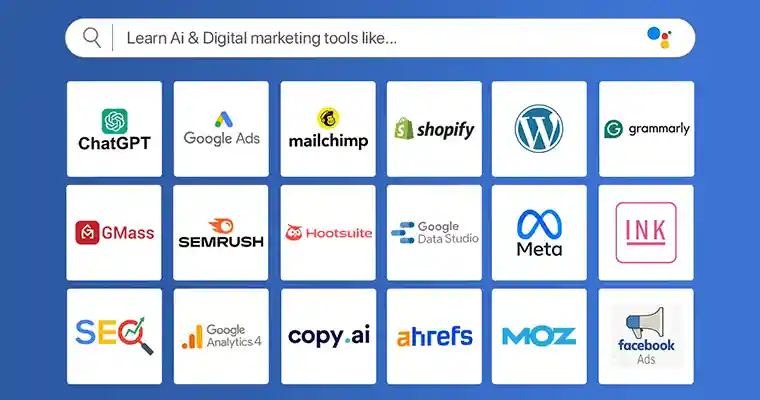




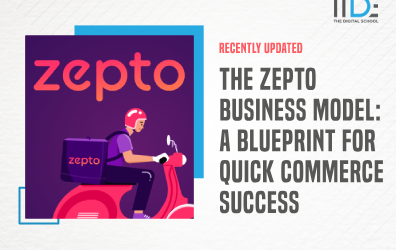
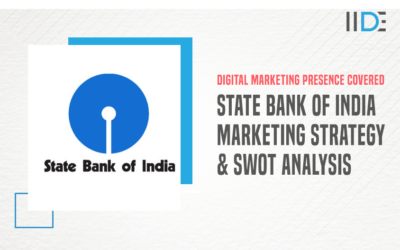
0 Comments